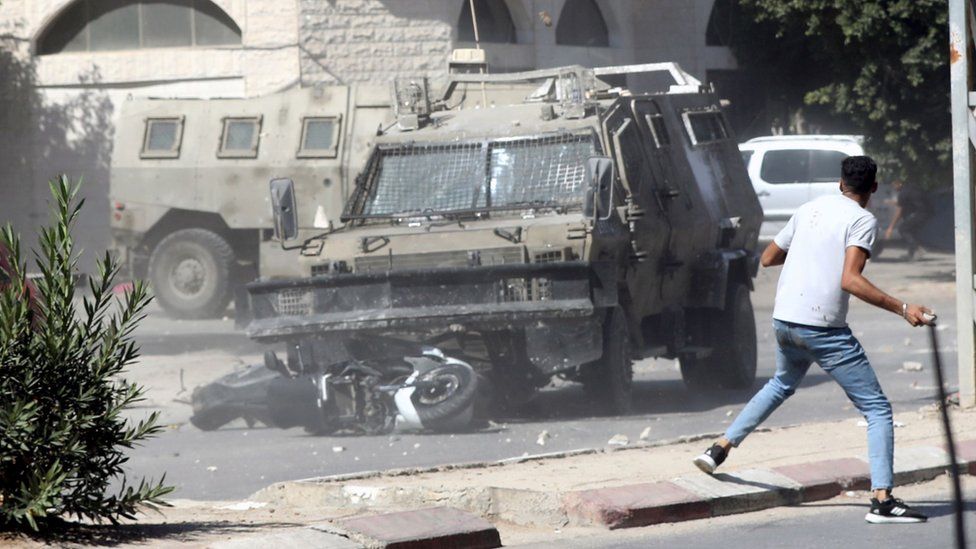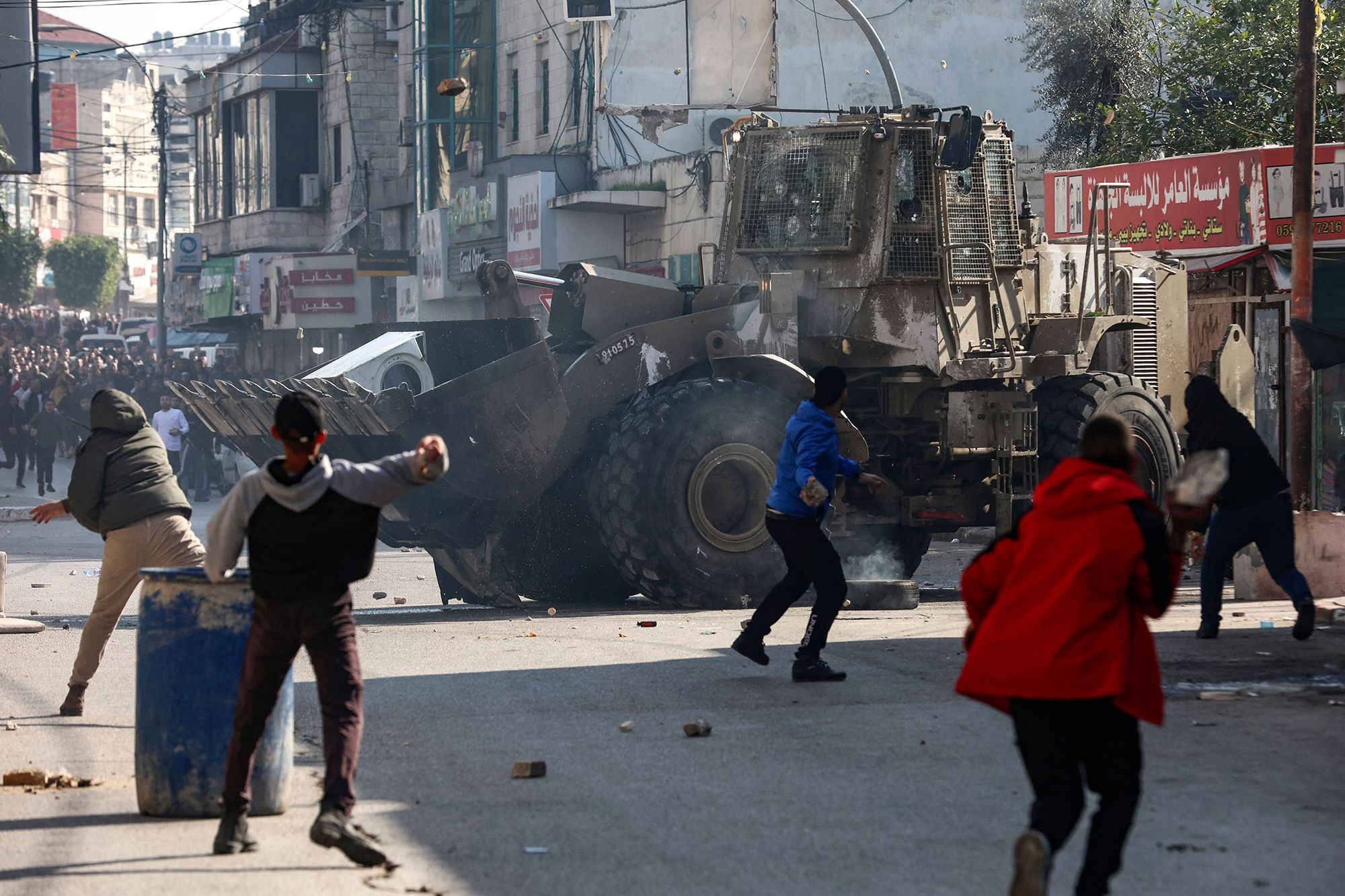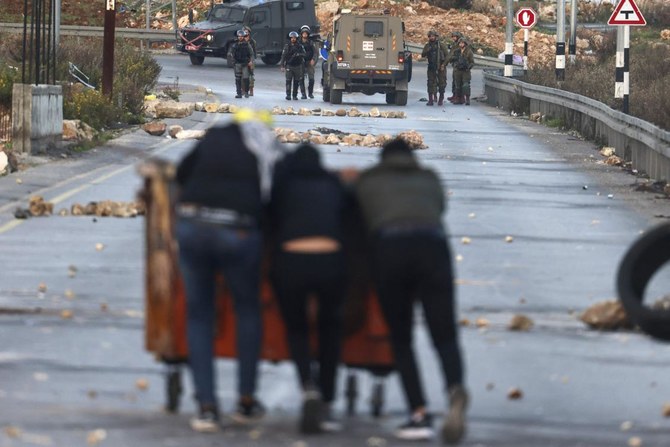Israeli raids result in seven deaths in West Bank

Escalation in West Bank: Israeli Raids Result in Seven Palestinian Deaths
In a recent surge of violence in the West Bank, Israeli military operations have led to the deaths of seven Palestinians, including two militant commanders and a woman. The raids, aimed at targeting armed gunmen, triggered intense clashes primarily in cities like Tulkarm and Hebron. This escalation comes amidst heightened tensions following a significant Hamas assault on southern Israel, marking a resurgence in conflict dynamics in the region.
The fatalities occurred during multiple Israeli military actions across the occupied West Bank. Reports from Palestinian and Israeli sources confirm that one of the operations unfolded in Tulkarm, where fierce confrontations erupted between Palestinian militants and Israeli soldiers on the city streets. According to Palestinian sources, among the casualties were a member of the Islamist group Hamas and another affiliated with the rival Fatah faction. Additionally, a woman lost her life during the exchange, as reported by the Palestinian health ministry. The identities of the remaining victims have yet to be disclosed.

An Israeli military spokesperson provided clarification on the operations, stating that an airstrike had specifically targeted armed militants operating within the area. The spokesperson acknowledged ongoing skirmishes and exchanges of gunfire in the aftermath of the raids. Meanwhile, separate reports from the Palestinian health ministry indicated that two more Palestinians were killed in a distinct military action near Hebron, although their identities remained unspecified.
The surge in violence within the West Bank had been escalating even before the October 7th assault by Hamas on southern Israel, which significantly exacerbated tensions and triggered broader ramifications across the region. The ensuing clashes since then have resulted in over 500 Palestinian casualties, encompassing both militants and civilians caught in the crossfire. The ongoing conflict underscores the deep-seated tensions over the occupied territories, which have been at the heart of the Israeli-Palestinian conflict for decades.

The backdrop to these recent escalations lies in the historical and geopolitical context of the West Bank. Israel captured the West Bank, along with Gaza Strip and East Jerusalem, during the 1967 Middle East war. These territories are crucial to the Palestinians’ aspirations for statehood, as they seek to establish their sovereignty over these areas. However, Israel’s continued expansion of settlements in the West Bank has been a contentious issue, deemed illegal under international law by many nations and organizations, including the United Nations.
The settlements, which have steadily expanded over the years, are seen by Palestinians as a major obstacle to achieving a viable independent state. They view these Israeli settlements as encroachments on their land, further complicating the prospects for a peaceful resolution to the conflict. The expansion of settlements has been a recurrent point of contention in international diplomacy and has contributed significantly to the simmering tensions and sporadic outbreaks of violence in the region.

Furthermore, the internal Palestinian dynamics, marked by political rivalries between Hamas and Fatah, also contribute to the complexities of the situation. The divisions between these factions, with Hamas governing Gaza and Fatah maintaining control in parts of the West Bank, have often led to conflicting strategies and approaches towards Israeli policies and engagements. This internal fragmentation among Palestinians has at times hindered cohesive efforts towards a unified strategy for negotiations or resistance against Israeli actions.
The international community has repeatedly called for restraint and de-escalation in the region, emphasizing the urgent need for dialogue and diplomacy to prevent further loss of life and alleviate the humanitarian impact on civilians. Efforts by mediators and international organizations to broker peace talks have often faltered, underscoring the entrenched nature of the Israeli-Palestinian conflict and the challenges of finding a sustainable resolution acceptable to all parties involved.
As the situation in the West Bank remains volatile and unpredictable, the ramifications of these recent escalations extend beyond immediate casualties to broader implications for regional stability and international peace efforts. The continued cycle of violence underscores the pressing need for renewed efforts towards a comprehensive and inclusive peace process, addressing the core grievances and aspirations of both Israelis and Palestinians.
In conclusion, the recent Israeli raids and subsequent fatalities in the West Bank reflect a troubling escalation in an already volatile region. The conflict’s roots in historical grievances, territorial disputes, and political rivalries continue to fuel tensions and pose significant challenges to achieving a lasting peace. Addressing these complex issues requires sustained international engagement, commitment to dialogue, and a genuine effort towards finding equitable solutions that uphold the rights and aspirations of all parties involved.














Leave a Reply